Our colleague Dr. Gregg Jantz, who is a sponsor of our Wonder of Parenting Podcast and who will be keynoting at our Summer Training Institute next June, just sent this very helpful blog post to his lists. We were glad to receive it, and we want to pass it on to all of you. It is packed with practical information for the holidays.
Dr. Jantz is founder of The Center, A Place of Hope, in Edmonds, Washington. The Center has been rated one of the top ten in the country for treating depression. Thank you, Dr. Jantz, for this post and your work
Hi Friends,
The holiday season is supposed to be filled with bright lights, delicious food, warmth, and loved ones. It is a time to be grateful for the abundance in your life, and to share gratitude and appreciation with others.
Unfortunately, for some people, it can also be a time of intense loneliness, depression, anxiety, and debilitating stress. The loss of a loved one, especially in the past year, can cause overwhelming grief during this season.
Left unresolved, these feelings develop a life of their own, creating stress that, overtime, can lead to emotional exhaustion and other problems.
Why Stress and Anxiety Affects Us During the Holidays
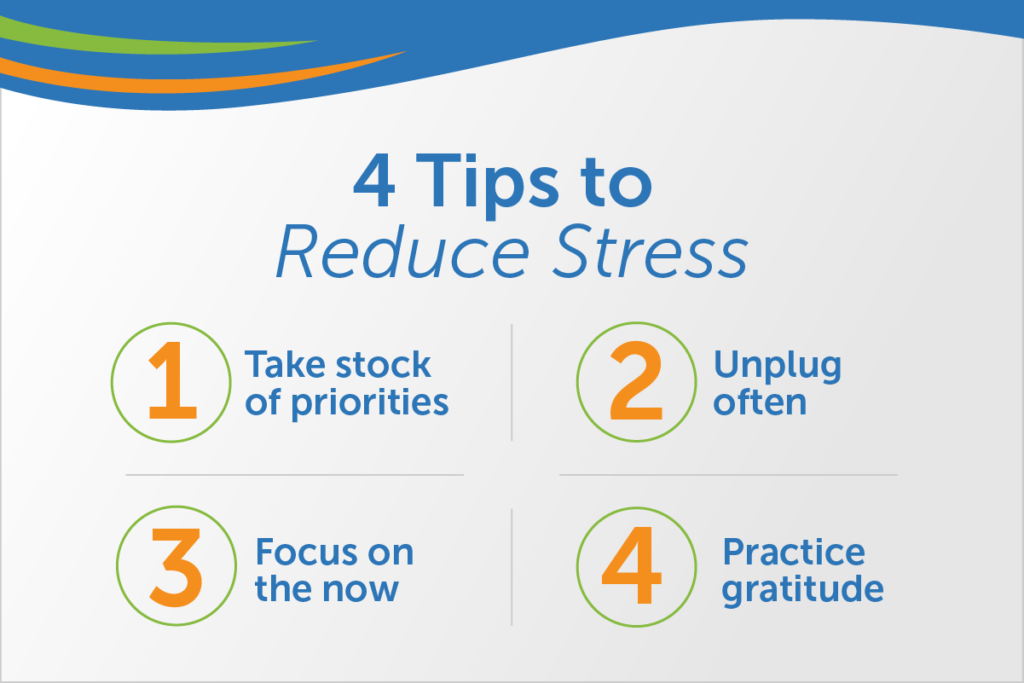
4 Tips to Reduce Stress
What do we do when life seems hopeless and we feel stressed out? We move into areas we think will help, or at least provide a distraction: more work, alcohol, obsessive/compulsive activity, entertainment, and frantic escape from reality.
But it’s almost always more and more of the wrong thing. Instead of helping us regain control of our lives, it produces an internal environment that evolves into burnout. When our burnout and stress builds to a level where we cannot endure the pain any longer, we cross the line to physical and mental exhaustion.
Before long, we forget who we are and what we’re about. We forget that joy comes from within, not from external sources. It is difficult to fake joy and happiness at holiday parties and family gatherings when we feel dark and empty inside. To some degree, we’ve all been there. We’ve all lost sight of the purpose of the holiday season, and we begin to focus on the wrong things.
Seasonal Affective Disorder
If that’s not enough, shorter days of sunlight can bring on a phenomenon known as Seasonal Affective Disorder (SAD). Also known as seasonal depression or the “winter blues,” seasonal affective disorder is a unique form of depression. It typically begins and ends around the same time each year and, as the name suggests, is related to seasonal changes.
In the last few weeks, have you been asking yourself questions like “Why do I feel sad for no reason?” or “Why am I so tired all the time?” If you said “yes,” SAD could be the culprit.
For those with seasonal affective disorder, symptoms tend to start fairly mild. Then, as the seasons continue (and, in most cases, as the weather gets colder), they become more severe. Symptoms can last for four months, or longer.
While SAD may not seem overwhelming, coupled with other feelings of depression, worry or anxiety during the holiday season, it could be the tipping point that could push one “over the edge.” Be aware of potential SAD and, if you are already experiencing pressures this season, be aware of a compounding effect.
If you are struggling significantly this season, and do not feel it is resolving easily, please call us at 888.771.5166 to learn about our whole person approach to care.
Gratitude is a Key Antidote for the Holidays
How do you de-stress your life during the holiday season, and regain the joy and light that is supposed to come with the holidays?
One good place to start is with gratitude.
Gratitude is the antidote for toxic things that come into our lives. Simply put, gratitude fosters optimism, which strengthens hope. That’s why it’s hard to imagine more effective soul medicine than gratitude. The list of things we can and should be thankful for—even in our darkest moments—is practically inexhaustible.
Granted, sometimes troubles make it hard to muster gratitude for things like being alive or the loved ones in your life. So begin with small ones. Try saying thanks for crisp leaves on a fall day, the taste of your favorite tea, the phone call from your best friend, or the chance to sleep in on a Saturday morning.
Gratitude has a way of spreading exponentially. The more you choose to be grateful, the more you will find to appreciate. You will notice the beauty all around you in the world, and you will develop an acute awareness of the loving God responsible for it all. When dark thoughts threaten to push everything else aside, purposeful gratitude is a powerful way to push back.
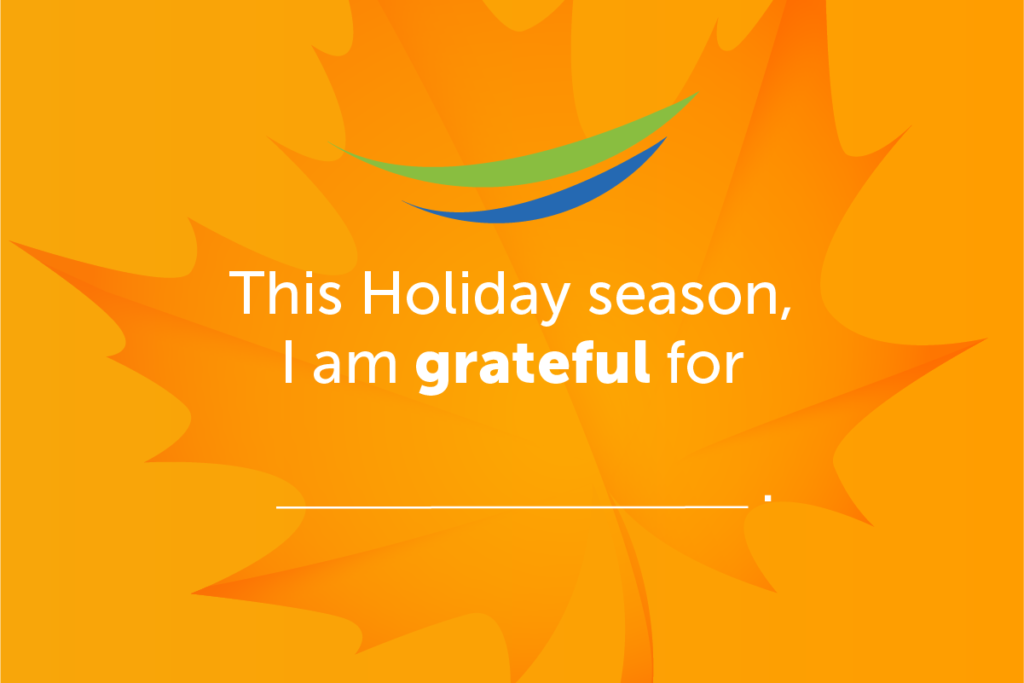
I am grateful for ____
Gratitude can be a sign of spiritual maturity. People who recognize their blessings and give thanks for them are living the essence of happiness, health, and healing.
For the next two weeks, take time each morning and night to write down 3 things for which you are grateful. This simple act can drastically change how you experience your day and how you interact with the people around you.
Managing Stress and Anxiety For the Holidays
We can’t undo painful triggers from the past. But at the individual level, for today, and this holiday season, here are some things in Healing Depression For Life we all can do to help ourselves and those we love not just get through it, but start to thrive.
- Relax and Pray. Remind yourself that you get to control your thoughts. Practice letting comments that normally cause you stress to roll off your back. Give the aggressive driver on the highway a pass, and don’t get irritated when they cut you off. Take 10 purposeful, deep, consistent breaths to start your day. Do the same before you go to bed. Pick a time of day to connect with God. Maybe it is when you wake and are still laying in bed; or maybe in the evening right before you get into bed. Talk, and voice your gratitude as well as your need for support and strength, for calm, and for resolution or a dissolution of challenging situations.
- Be “Positively” Proactive. If someone gets within 10 feet of you, make eye contact and smile. If they get within 5 feet of you, say hello (and smile again). A leading worldwide hotel chain credits this seemingly simple task with greatly strengthening their brand in the eyes of their customers. Hospitals are finding this same technique is creating a much better patient experience, and actually improving outcomes.Tell two people today why you care about them. Help at least one person who needs it – at the grocery store, in your workplace, at home. Send good energy out into the world, and watch it come back to you. Practice your positive self-talk to affirm yourself and the things and people you appreciate.
- Avoid Hot Spots. if you know a person or situation causes you anxiety, work to reduce time in that area, or remove yourself completely. But always be polite, kind and discreet if needed.
- Be Honest About The Holidays. Holiday time can be very special, but also incredibly painful and terrifying to many. If you know the holidays can be a challenge, be honest with yourself and work now to create environments and situations that change the dynamic. If preparing your home for a large family meal is too stressful, see if you can do it at another’s home this year, or eat out. If the stress and pressure of shopping and selecting gifts produces anxiety and worry, set a new standard this year that is both enjoyable and stressful for you. It will probably be well received by others!
- Ask For Help. If you dread the holidays, consider counseling or treatment during this season. Schedule treatment during this time to both avoid the difficult period, and also strengthen your soul and fortify yourself for a new future, with new energy, balance and happiness.



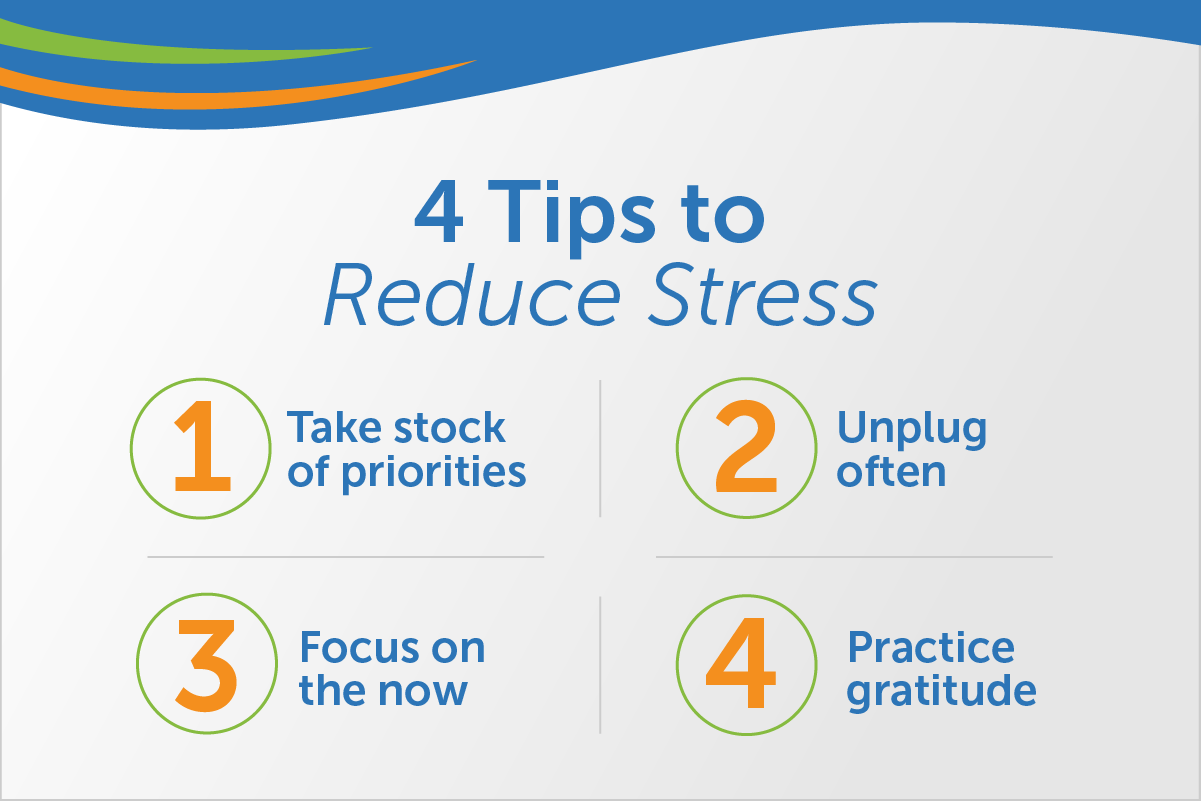



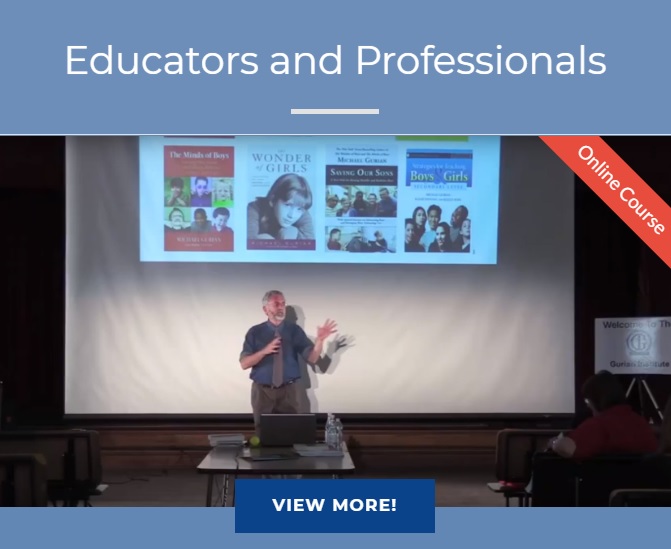
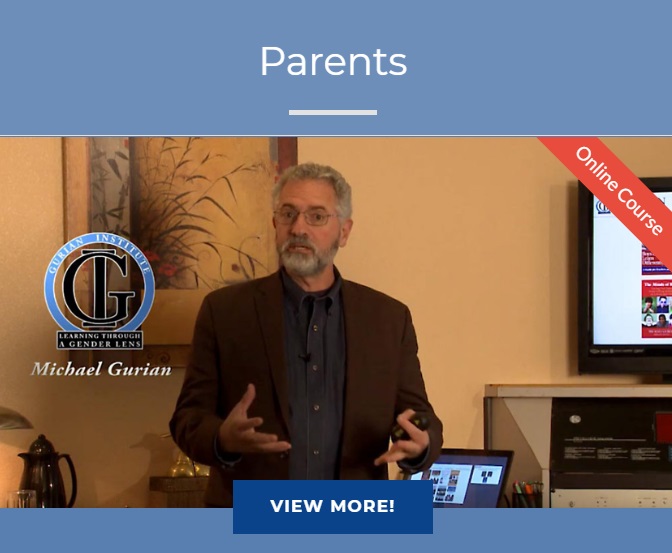


I appreciate your recommendation of these blogs because I am always searching for anxiety blogs. I have also learned a lot of new things. I will definitely share with others.